Serie A
Euro 2020 predictions: Champion, biggest flop, top scorer, and more
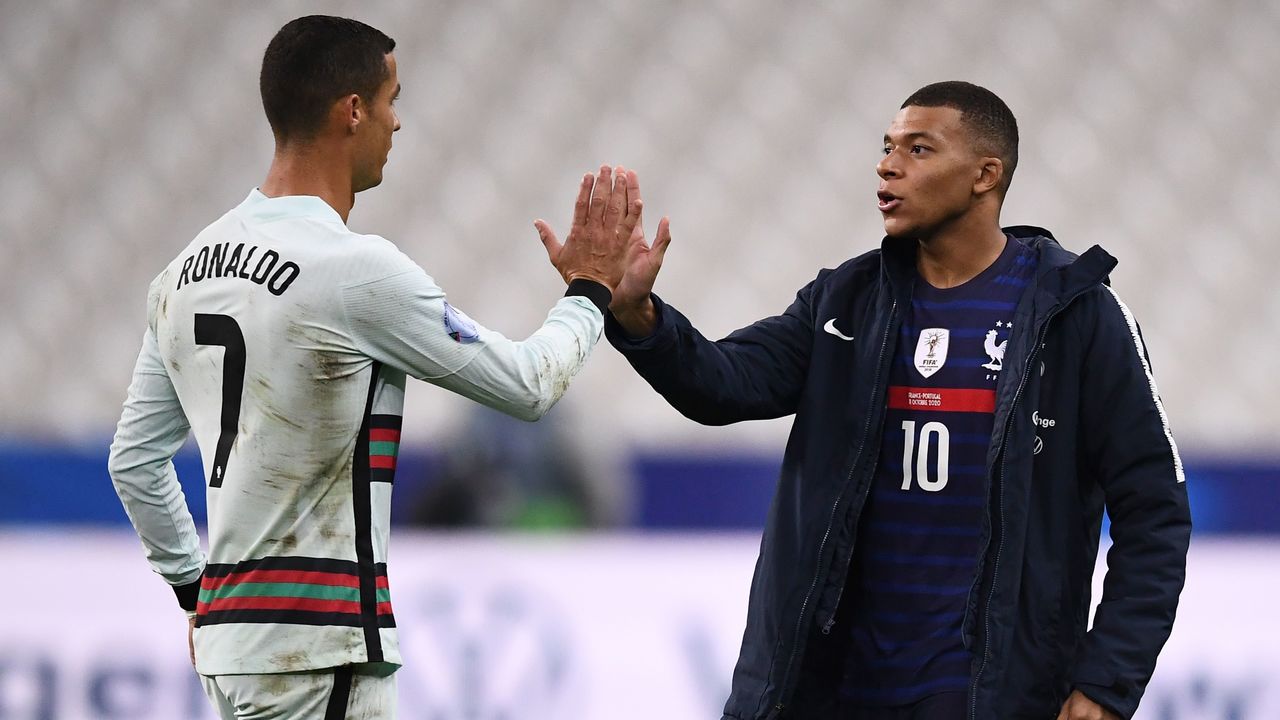
With Euro 2020 just one day away, theScore’s footy editors are breaking out the crystal balls and offering up some predictions for the tournament.
Most excited about …
Michael J. Chandler: The abundance of dark horses participating in a tournament that could be rife with surprises. Denmark, Turkey, and Ukraine are among a slew of largely uncelebrated sides entering Euro 2020 with legitimate hopes of making a deep run. In the wake of domestic leagues throwing up shock results, it’s not unthinkable that the same could occur in an international tournament.
Anthony Lopopolo: The group of death. We are guaranteed three top-tier matches in the first week-and-a-half of the tournament, with 2018 World Cup winner France facing 2014 champion Germany, Euro holder Portugal later meeting Germany, and France rounding out play against Portugal in a rematch of the 2016 final. All three teams could make the next round, with four of the six third-place finishers advancing to the knockout stage. So there’s no need to worry about losing some of the tournament’s biggest stars early on. Just enjoy the show.
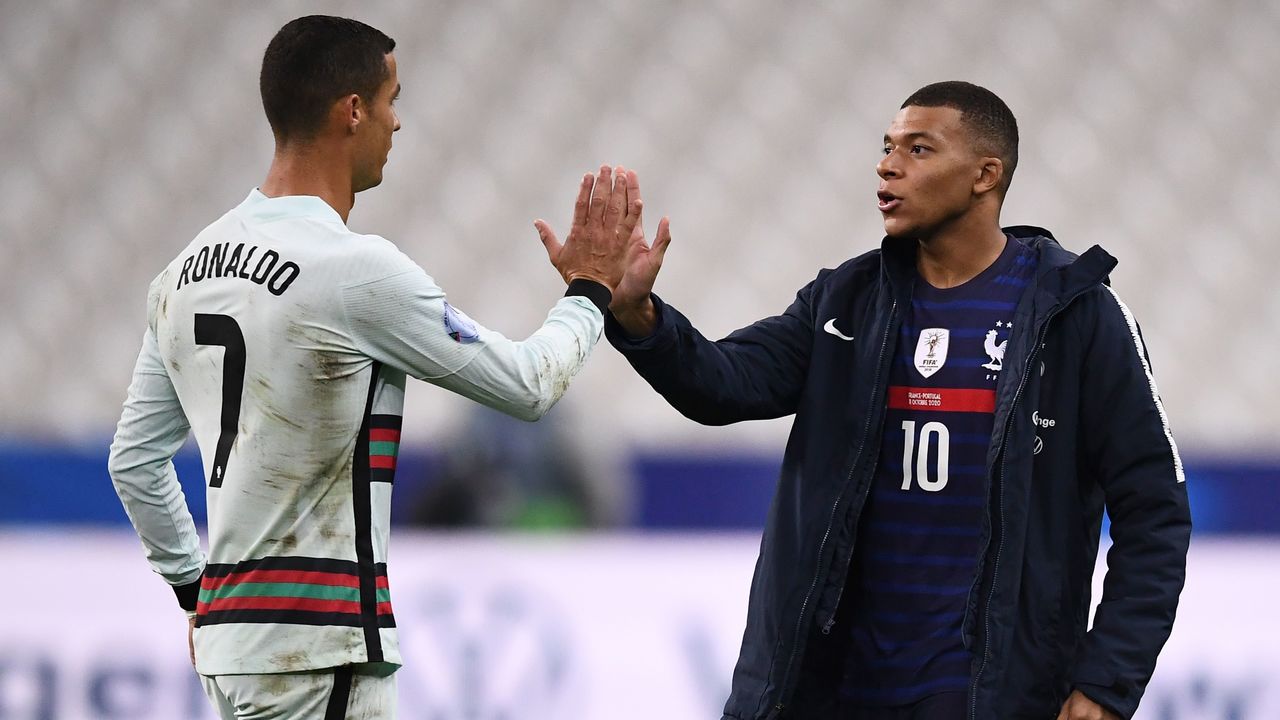
Gianluca Nesci: The thrill of an international tournament. After grinding through the slog that was the recent club season, Euro 2020 should provide a welcome breath of fresh air for fans desperate for a change of pace. Even if the football itself isn’t scintillating – which, to be honest, is a distinct possibility considering the workload on the players – the kind of tension and excitement you can only get from a major international competition will offset that.
Daniel Rouse: There’s something magical about the sight of a player taking center stage for his country after struggling during the club season. Guillermo Ochoa was a sensation in goal for Mexico at the 2014 World Cup after being released by relegated French side Ajaccio, and Wales’ Hal Robson-Kanu was heroic at Euro 2016 after a goal-shy campaign in England’s second tier. Who will drastically change the course of his career this year?
Breakout star
Chandler: Alexander Isak. Sweden’s Isak’s 17 La Liga goals played a big role in Real Sociedad’s fifth-place finish in Spain, and at Euro 2020, the 21-year-old forward will be relied upon to fill the gargantuan boots left by Zlatan Ibrahimovic’s absence. Expect Isak to get on the end of more than one of Sebastian Larsson’s pinpoint dead-ball deliveries as the Swedes look to progress from a Group C primed for upset results.
Lopopolo: Donyell Malen. The Netherlands needs production from someone other than Memphis Depay to make any kind of impact at the Euros. Enter Malen, PSV Eindhoven’s 22-year-old hotshot who took the Dutch Eredivisie by storm last season with 19 goals and eight assists in 32 appearances. Malen’s a strong passer and dribbler, and he should find a way to break down stubborn blocks of four. That will come in handy against Ukraine, North Macedonia, and Austria, who will likely defer possession to the Netherlands in Group C play.
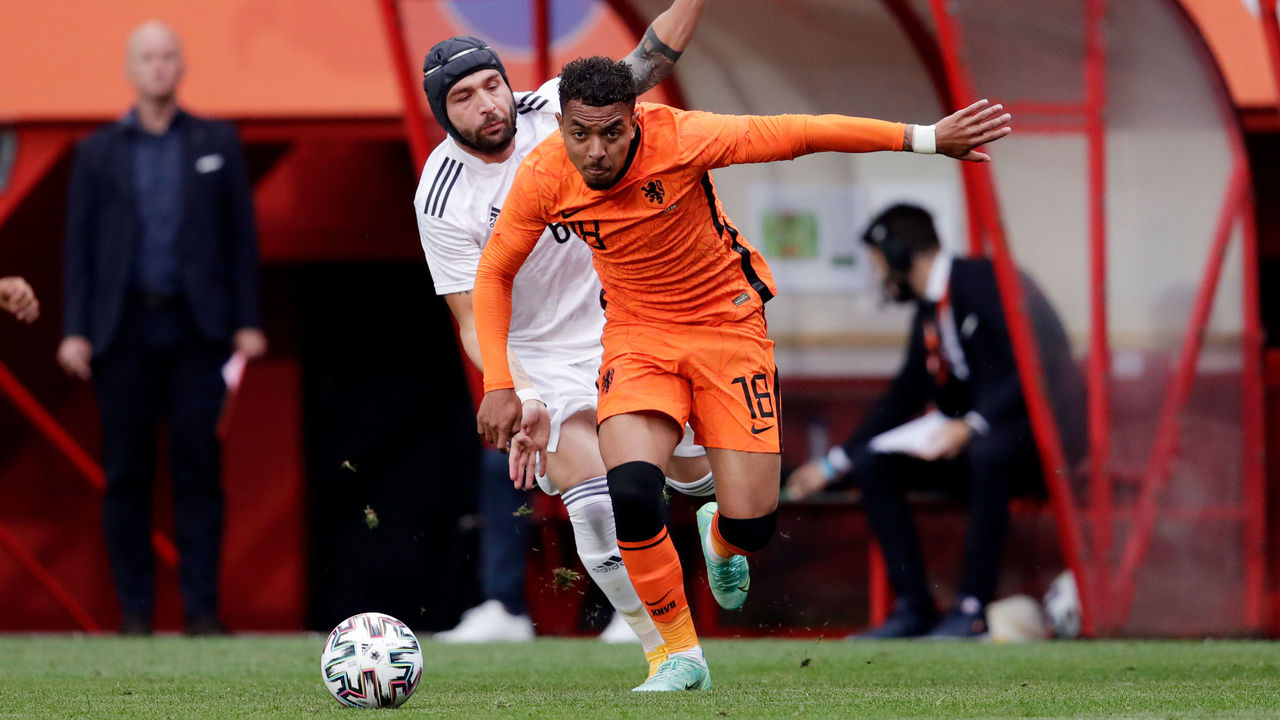
Nesci: Manuel Locatelli. There’s a reason the spindly Sassuolo midfielder is being linked with a big-money transfer this summer. His varied skill set has caught the attention of the continent’s top clubs, and the Italian has a great opportunity to open even more eyes. With Marco Verratti’s fitness in question – of course it is – the 23-year-old should see plenty of playing time as part of an excellent midfield trio for Italy.
Rouse: Phil Foden. This is definitely a case of picking the low-hanging fruit given Foden’s huge reputation in England, but it’s time for the rest of Europe to salivate over the playmaker’s incredible technical ability, unbridled confidence, and vision. The 21-year-old has also developed a reputation for scoring important goals following a sensational season with Manchester City.
Biggest flop
Chandler: Netherlands. Imagine having faith in a side managed by Frank de Boer – Inter Milan, Crystal Palace, and Atlanta United supporters nod in unison. After the recent 2-2 draw with Scotland, De Boer was asked who could play on the right side of a 5-3-2 formation, to which De Boer responded, “Queensy Menig could possibly go there, of course.” Perhaps he meant Quincy Promes, since FC Twente winger Menig didn’t even make the team. This is the man entrusted with orchestrating a major tournament run? C’mon.
Lopopolo: Belgium. The so-called golden generation is under a lot of pressure to deliver, and Kevin De Bruyne, arguably the best of the crop, is coming into the tournament banged up. Eden Hazard is also coming off one of the worst seasons of his career and unlikely to make a difference. Defensively, the Red Devils looked good in qualifying, but playing San Marino, Kazakhstan, Cyprus, Scotland, and Russia will make any backline look good. Buyer beware.
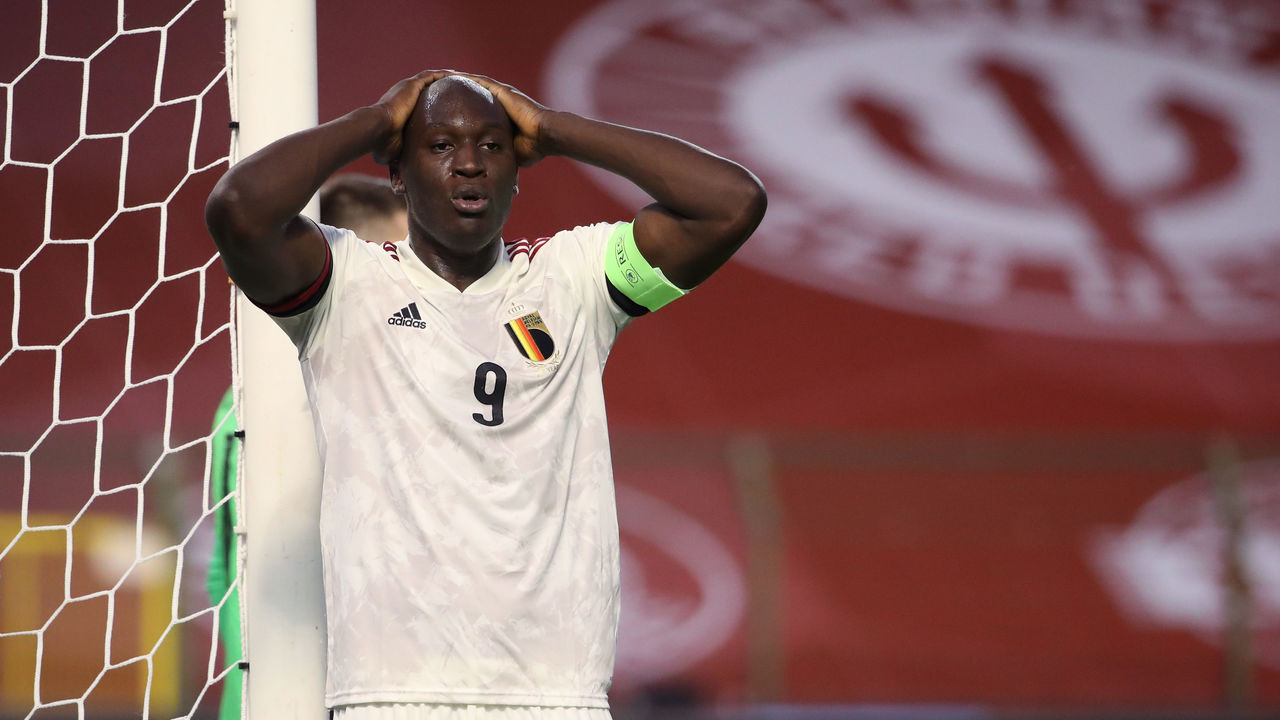
Nesci: Spain. This is a far cry from the all-conquering Spanish sides of years past, and COVID-19 issues within the squad may compound issues. There’s still plenty of talent at Luis Enrique’s disposal, but both star power and scoring punch seem to be lacking. A new generation is blossoming, but it’s not quite ready to deliver just yet. La Roja should benefit early from what looks like a very forgiving group, but the knockout stages won’t be kind.
Rouse: Germany. Joachim Low’s team will get plenty of cuts and bruises as it tries to emerge from the toughest group at the tournament, and then, as one of the best third-place finishers, would get another tricky match to begin the knockout rounds. Hansi Flick could have a serious cleanup job on his hands when he replaces Low after the Euros.
Golden Boot winner
Chandler: Burak Yilmaz. Going off the board with this one, but with Turkey looking to cause a few upsets en route to a deep run, the 35-year-old striker is primed for a standout tournament. Yilmaz bagged 16 league goals for shock Ligue 1 champions Lille this past season and will be blessed with stellar service from the likes of club teammate Yusuf Yazici, Hakan Calhanoglu, and Irfan Can Kahveci.
Lopopolo: Bruno Fernandes. Portugal’s attacking ensemble is arguably the best in the tournament, and Fernandes is at the heart of the operation. Though he’s not Portugal’s designated penalty taker – Cristiano Ronaldo continues to assume spot-kick duty – Fernandes is still a capable scorer from open play. And with defenders more likely to shadow Ronaldo, Diogo Jota, or Andre Silva, Fernandes could be afforded space in and around the 18-yard box.
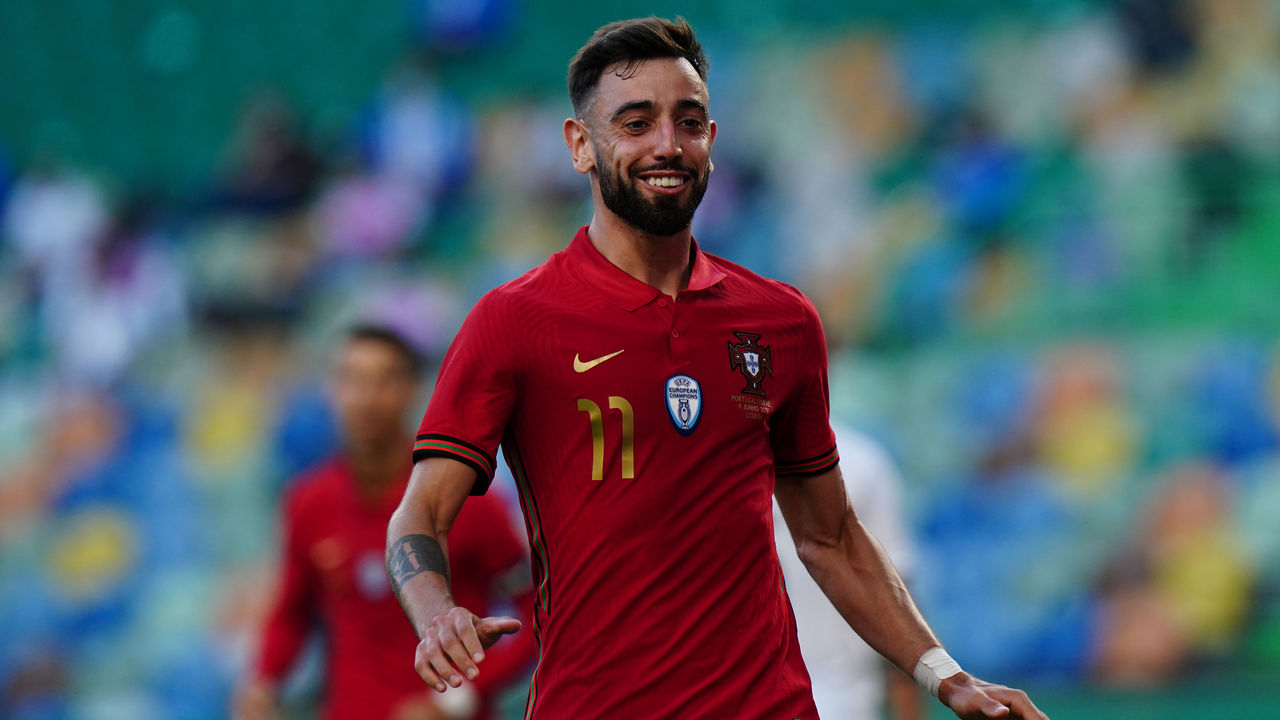
Nesci: Romelu Lukaku. Coming off another spectacular season with Inter Milan, the 28-year-old will be the focal point of an absurdly talented Belgian attack. He’ll also have the opportunity to feast on Finland and Russia in the group stage before leading the Red Devils on what they hope will be a title-winning run through the knockout rounds. Getting service from De Bruyne – assuming he’s fit – doesn’t hurt Lukaku’s chances here, either.
Rouse: Kylian Mbappe. Paris Saint-Germain had a disappointing season overall, but Mbappe wasn’t to blame. The 22-year-old notched 27 goals in Ligue 1 and smashed eight goals over 10 Champions League appearances, and he’ll be fronting arguably the best side at Euro 2020. A pretty straightforward pick, this one.
Tournament final – and champion
Chandler: France vs. Portugal – France wins. In a rematch of the 2016 final, Didier Deschamps’ men will get revenge against Fernando Santos’ sage offering. Karim Benzema’s addition to an already elite squad makes Les Bleus the team to beat.
Lopopolo: Italy vs. Portugal – Italy wins. This is the best team to come out of the Italian peninsula since the 2006 World Cup, and it has the midfield to dominate matches. Verratti should be fit for the latter stages, offering the Azzurri relief right when it counts. Head coach Roberto Mancini can also count on multiple scorers and tremendous width from his crop of wingers. Expect Italy to beat Ukraine, Denmark, and France on the way to the final, where the four-time World Cup winner will take advantage of Portugal’s aging defense.
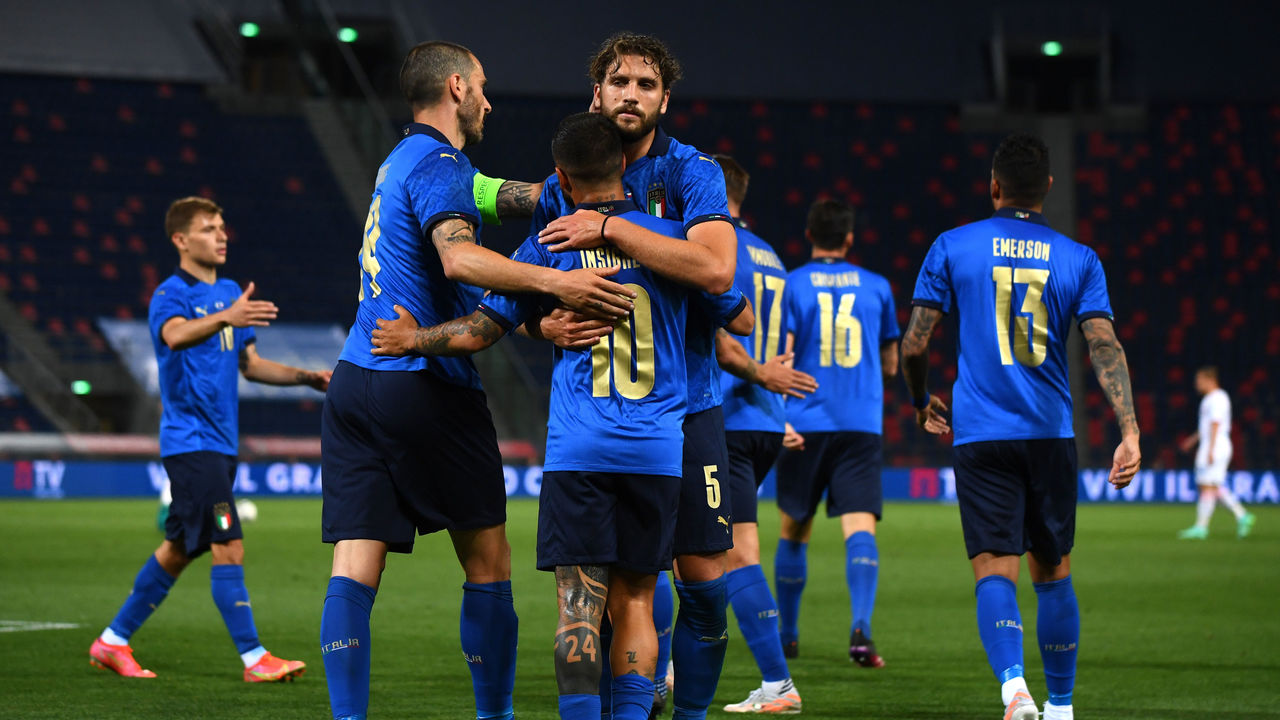
Nesci: France vs. England – England wins. English supporters have been burned before, and that’s created an understandable apprehension among large portions of the fan base going into just about every major tournament in recent history. But this edition of the Three Lions is for real. Gareth Southgate’s team is loaded up front, features depth at the back, and has interchangeable pieces in midfield. There’s the potential for an absolute gauntlet of opponents in the knockout stages, but there’s no better way to silence doubters than running through contenders before closing things out with a victory over France at Wembley.
Rouse: France vs. Portugal – France wins. The final match in Group F could also be the final match of Euro 2020. France is so strong, even under the at-times questionable stewardship of World Cup-winning boss Deschamps, so a spot in the final should be the absolute minimum. Portugal, meanwhile, is awash with talent in midfield and attack, while Ruben Dias can do a lot of the leg work in a backline that could feature Pepe and Jose Fonte, who have a combined age of 75.
You may like
Serie A
Managerial merry-go-round: Predicting hires for marquee jobs
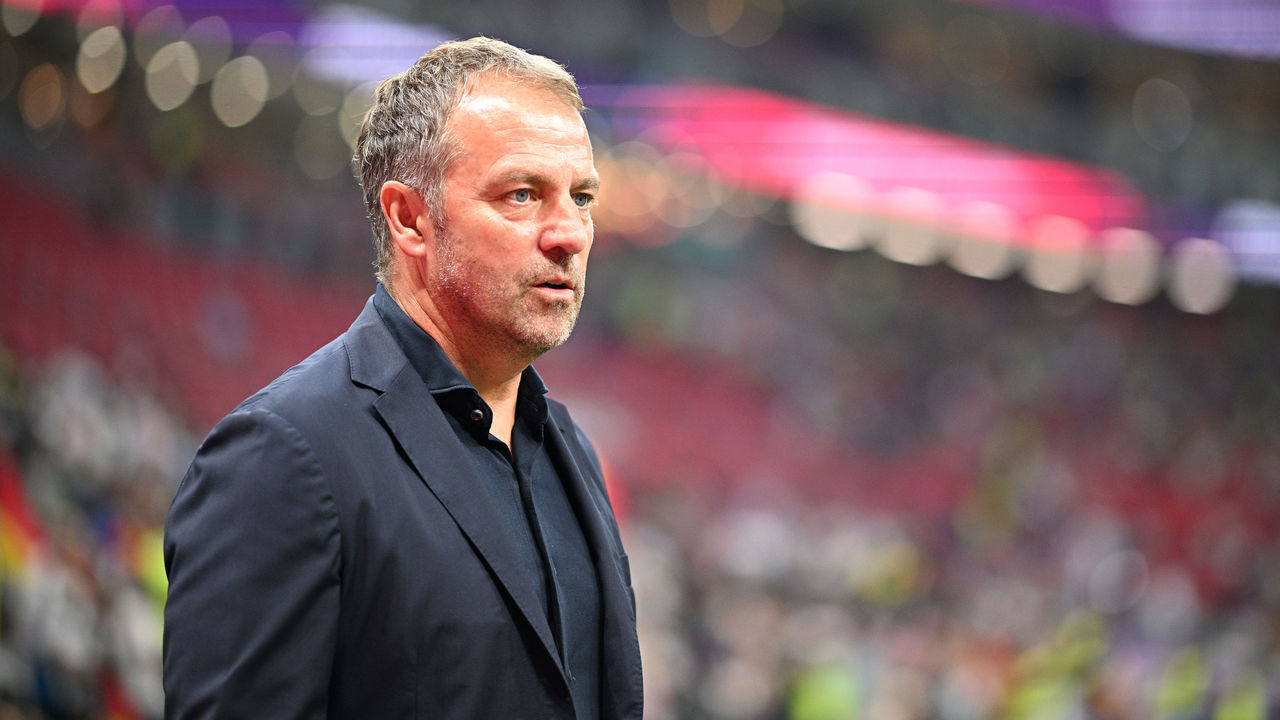
Find the biggest stories from across the soccer world by visiting our Top Soccer News section and subscribing to push notifications.
Forget the transfer window. World football’s biggest source of summer intrigue may very well come from a bevy of impending coaching hires after some of Europe’s most illustrious jobs suddenly became available all at once.
Jurgen Klopp dropped the first bombshell, deciding to depart Liverpool at the end of the campaign after a transformative nine-year spell at Anfield. Then, Xavi Hernandez, citing the “cruel and unpleasant” nature of his work at Barcelona, announced he would do the same. Bayern Munich and Thomas Tuchel promptly followed by confirming they will part at season’s end, too. In the blink of an eye, three coveted coaching positions at iconic clubs opened up at a time when some of the sport’s most decorated tacticians just so happen to be looking for work.
With that in mind, and with several other elite teams likely also looking for a new bench boss, we’re identifying ideal candidates for each job.
Open seats
Barcelona
Hansi Flick
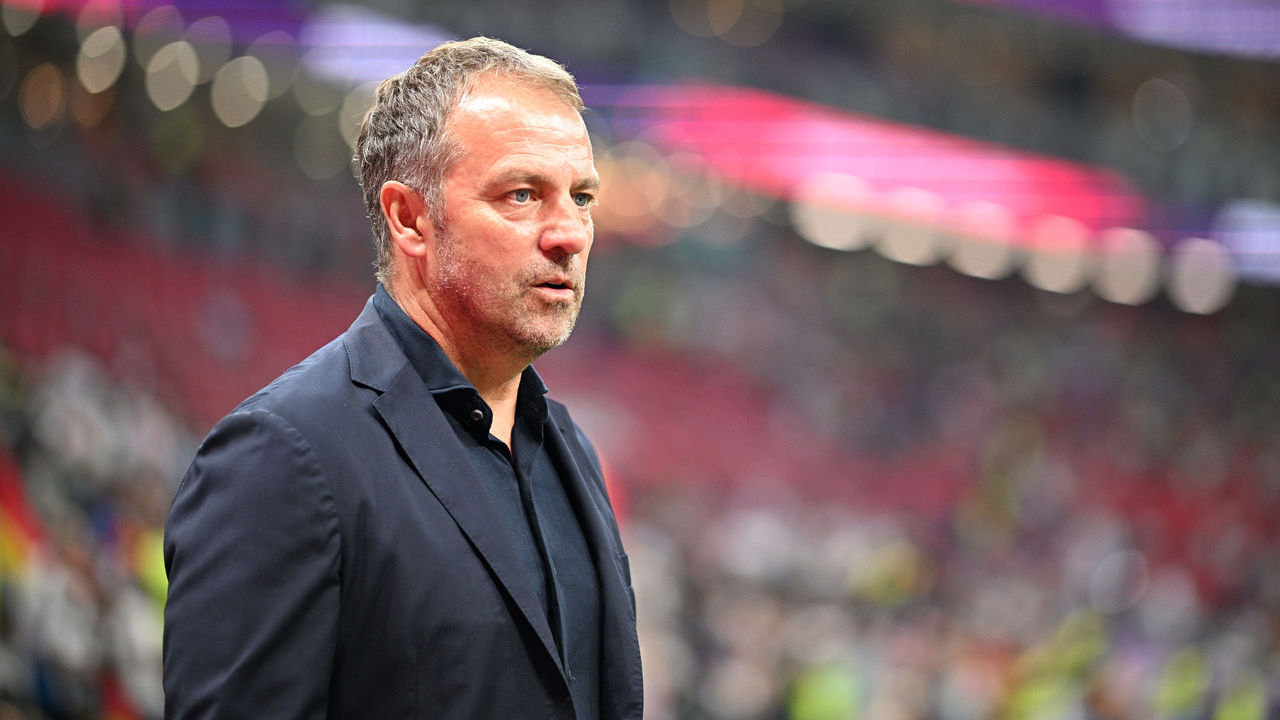
Xavi’s decision to leave his post was the most surprising of all the recent announcements. Klopp has spent nearly a decade at Anfield, winning almost every possible trophy, while Tuchel’s fit at Bayern was always tenuous, at best. The decorated ex-midfielder, however, only took over at Barca in 2021 and led his former team to a league title in his first full season. Even still, he said the job was “terrible on a mental health level” and sapped his morale. Not exactly a ringing endorsement. Constant criticism, financial decay, and off-field disarray may deter some, but this remains one of the sport’s biggest roles.
Former Bayern Munich and Germany manager Flick checks too many boxes to be overlooked. He led Bayern to a treble in 2020, has experience dealing with big personalities, and his attack-minded style gels with Barcelona’s longstanding philosophy. Perhaps most critically, he’s not under contract anywhere else, so cash-strapped Barca wouldn’t have to pay a fee to obtain him. In what could be viewed as a preemptive move, Flick joined Pini Zahavi’s Gol International agency in February. The Israeli super agent has very close ties with Barca president Joan Laporta, particularly after brokering Robert Lewandowski’s transfer in 2022. That relationship matters, and it puts Flick in prime position to become the next Barcelona manager.
Bayern Munich
Sebastian Hoeness
Make no mistake, Bayern Munich want Xabi Alonso. The tug-of-war with Liverpool is underway behind the scenes. Should they miss out on their primary target, though, there’s another young tactician making waves in Germany who would be a perfect fit at the Allianz Arena. Were it not for the remarkable job Alonso’s doing at Leverkusen, Hoeness, 41, would be the talk of the town. Stuttgart were last in the Bundesliga when he assumed the job in April 2023. After navigating a relegation playoff to remain in the top tier, he now has them sitting comfortably in a Champions League place, mixing possession-based football with occasional bursts of more direct play.
That he recently signed a contract extension with Stuttgart complicates matters, but only somewhat. It wouldn’t be prohibitive. Bayern can afford to pay whatever is necessary to pry him away. If anything, seeing their title-winning streak end will only strengthen their resolve to do so. And then there’s that famous name. Hoeness’ uncle, Uli, is Bayern’s honorary president and still wields immense power. His father, Dieter, scored over 100 goals for the Bavarian outfit. And Sebastian himself has already worked for the club, winning a third-division title with Bayern’s U23 team in 2020. Those connective tissues are tough to ignore.
Liverpool
Xabi Alonso
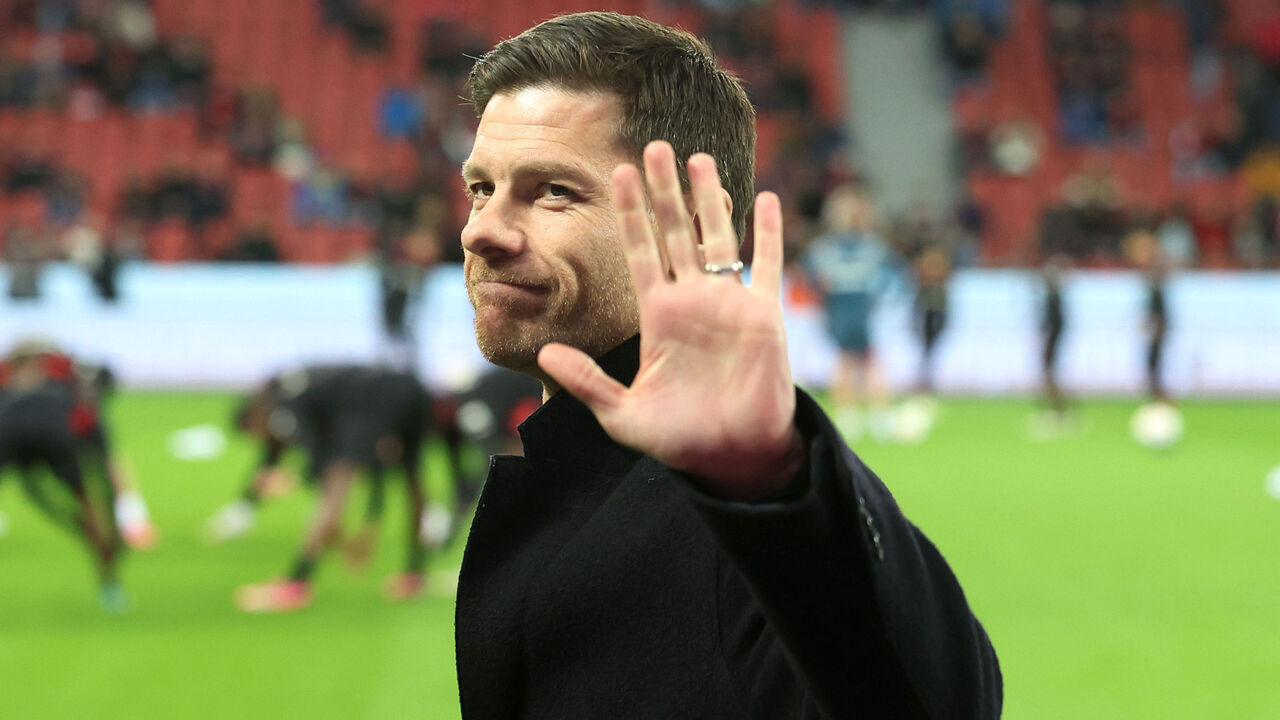
The enormity of the task facing Liverpool can’t be overstated. Klopp is more than just a wildly successful manager who brought the Merseyside club back to the pinnacle of the sport. He’s a truly beloved figure who forged an unbreakable connection with the city and fans. He cares deeply about the people at the club and has always wanted everyone to share in its success. Replicating that 100% with their next hire, is, frankly, impossible. There isn’t another Jurgen Klopp out there. Liverpool need to find someone with similarly holistic values who can take what the German has built and put their own mark on it. One man stands out as the obvious choice.
Alonso, the club’s top target, isn’t a perfect stylistic match on the pitch. Liverpool, who value a data-driven approach to these decisions, will already know that the Spaniard’s Leverkusen team doesn’t play the same type of aggressive vertical game that Klopp’s men have long thrived on. But he can be adaptable, as his players have noted during their remarkable unbeaten season thus far. He trusts his tactical ideas but isn’t beholden to them. Having spent five years at Anfield during his playing career, there’s also a bond already in place that the other realistic candidates cannot claim. And, crucially in the supporters’ eyes, he has Klopp’s approval; the outgoing coach recently dubbed Alonso the “standout” manager of the new generation. There are plenty of good options available, but he’s the right one for Liverpool.
Other clubs to watch
AC Milan
Fluctuating levels of fan satisfaction with a manager isn’t unique to AC Milan. Far from it. But, even within that context, the constant shift in sentiment toward Stefano Pioli has been disorienting for some time. The Italian was a hero when he delivered Milan their first Scudetto in over a decade in 2022 and then got them to the semifinals of the Champions League.
But his poor record against city rivals Inter is the cause of much consternation, and, even though Milan have surged up to second place in Serie A in 2024, rumors about Pioli’s potential successor have been swirling for much of the season amid inconsistent performances and some humiliating defeats. Antonio Conte, seemingly ready to return to the touchline after spurning Napoli’s advances last year, could complete an Italian trifecta having already coached Juventus and Inter, where he won league titles with both.
Bayer Leverkusen
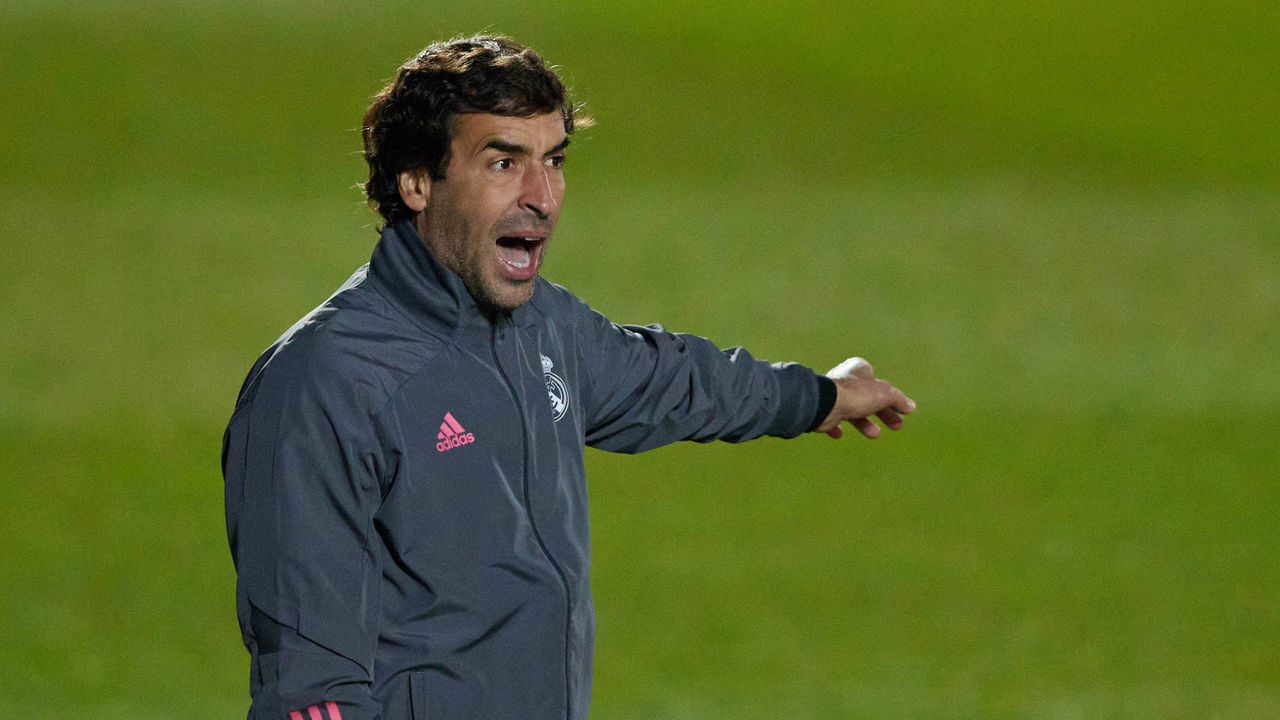
Xabi Alonso’s departure is all but guaranteed. The identity of his potential successor, however, is a mystery. What’s most unusual is the lack of chatter. By now, you’d expect agents and intermediaries to leak information about their clients being connected with the job. Maybe the big-name coaches view it as a poisoned chalice?
Barring a huge collapse, Alonso will guide Leverkusen to their first-ever Bundesliga title. Any incoming boss will be held up against that standard and have to deal with a rejuvenated Bayern Munich while likely losing some of the club’s top talents in the summer. The best fit, then, is a young manager who, like Alonso when he arrived at the BayArena, is trying to rise through the ranks. Spanish legend Raul, currently coaching Real Madrid’s Castilla, has history in Germany from his time at Schalke and fits that bill. After experiencing huge success with one ascendant Spaniard, why not another?
Borussia Dortmund
Edin Terzic’s position has been under threat ever since Dortmund’s brutal collapse on the final day of the 2022-23 campaign handed the title to perennial rivals Bayern Munich. The team’s error-prone performances this season have done little to quell speculation over his future. Dortmund sit fourth in the Bundesliga, one point above RB Leipzig in the race for the division’s final Champions League place.
The next two months will almost certainly be decisive, both for the club’s fortunes, and Terzic’s. Coming out of the international break, Dortmund play Bayern, Stuttgart, and Atletico Madrid – twice – in the Champions League. They immediately follow up the second leg of that quarterfinal tie with games against Leverkusen and Leipzig. You couldn’t concoct a more challenging gauntlet if you tried. If Dortmund flounder, they could look to Julian Nagelsmann, whose contract as Germany’s national team boss is slated to expire after Euro 2024.
Chelsea
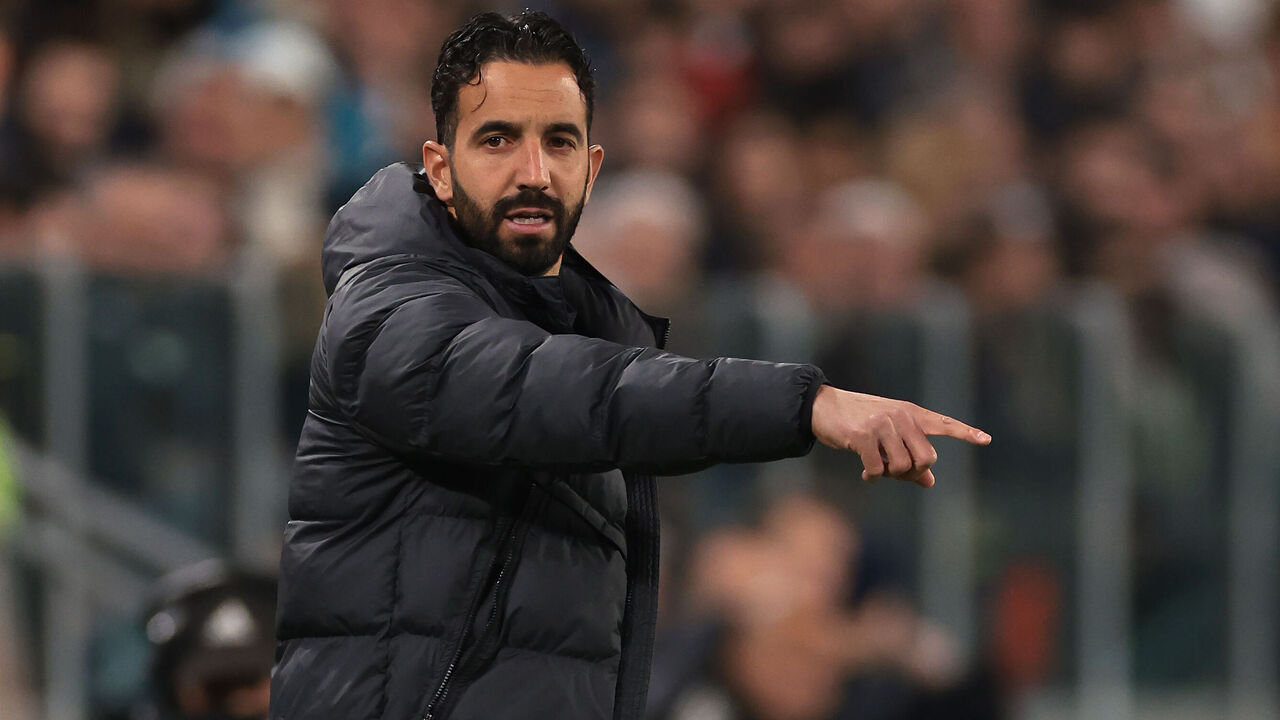
How many more times can Mauricio Pochettino ask Chelsea supporters for patience? How long until he gets tired of hearing his own fans openly mock him and question his decisions? The Argentine has remained diplomatic and continues to insist he’s dedicated to the club’s long-term project despite the early hiccups. Everyone has a breaking point, though.
If Pochettino gets fed up, or the club’s infamous ownership group becomes restless and wants to make another coaching change, Ruben Amorim could be in line for his big opportunity in the Premier League. The Portuguese tactician, 39, is highly regarded after leading Sporting CP to their first league title in 19 years in 2020-21, and his uptempo, high-pressing style figures to fit well in England. He also has an excellent track record working with blossoming talents, something he’d find plenty of in west London following Chelsea’s lavish spending on some of the game’s most intriguing young players.
Juventus
Massimiliano Allegri did an excellent job guiding Juventus through a turbulent 2022-23 season, acting as the calm pillar of the club while everything around him was in turmoil thanks to points penalties, off-field investigations, the shocking mass exodus of the club’s board of directors, and more. He navigated the stormy seas and deserves credit. But this season was supposed to be a significant step forward. He said as much.
Instead, his team has stagnated on the pitch after an encouraging start, and it seems clear he’s not the right manager to take this group to the next level. The squad may be flawed in certain areas, but it’s much better than the tiresome football it’s been showing, especially during a miserable run of one win in eight games. Enter Thiago Motta, the 41-year-old who has high-flying Bologna in line for a Champions League place by applying the type of exciting style that could liberate Juventus’ players.
Manchester United
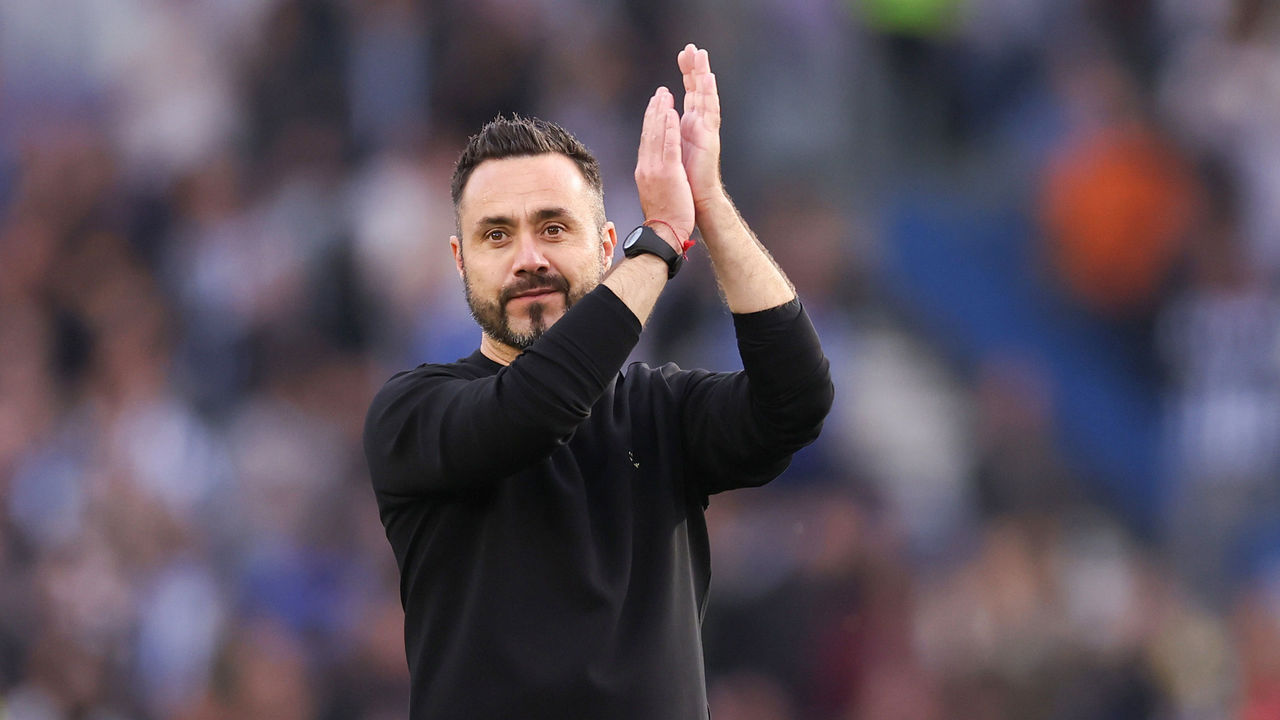
For what feels like the millionth time, Erik ten Hag has said he hopes Manchester United’s latest win – an intoxicating last-second triumph over rivals Liverpool in the FA Cup – will be a turning point in their otherwise meandering season. Fitting, really. There have been so many “turning points” already that United are just going in circles.
Stability is vital for the long-term health and success of any club, but not just for the sake of it, and not when it’s become clear the current manager isn’t capable of taking the team to new heights. Ten Hag’s questionable personnel decisions should have the new INEOS chiefs looking to make a change, let alone the tepid play and inconsistent results. Roberto De Zerbi should be atop the list of replacements. Manchester United were once synonymous with entertaining football. The Italian could help reinstate that reputation and get the Red Devils out of their rut.
Napoli
Replacing the mastermind behind Napoli’s first Serie A title in 33 years was always going to be an enormous, unenviable task, but president Aurelio De Laurentiis bungled it in spectacular fashion. Rudi Garcia seemed like a bad fit to succeed Luciano Spalletti right from the start, and so it proved. He lasted five months. His replacement, Walter Mazzarri, didn’t even make it that long.
Napoli are on their third coach in what has been a disastrous title defense, but Francesco Calzona is little more than a temporary solution until De Laurentiis starts the process over again in the summer. To avoid making the same mistakes, he should look to Fiorentina’s Vincenzo Italiano. The 46-year-old has worked his way up the divisions; he got Trapani promoted from Serie C, helped Spezia jump from Serie B to the top tier, and brought the Viola to the Conference League final last season, all while retaining an attack-minded style of play. He’s earned this opportunity, and the interest is mutual.
Roma
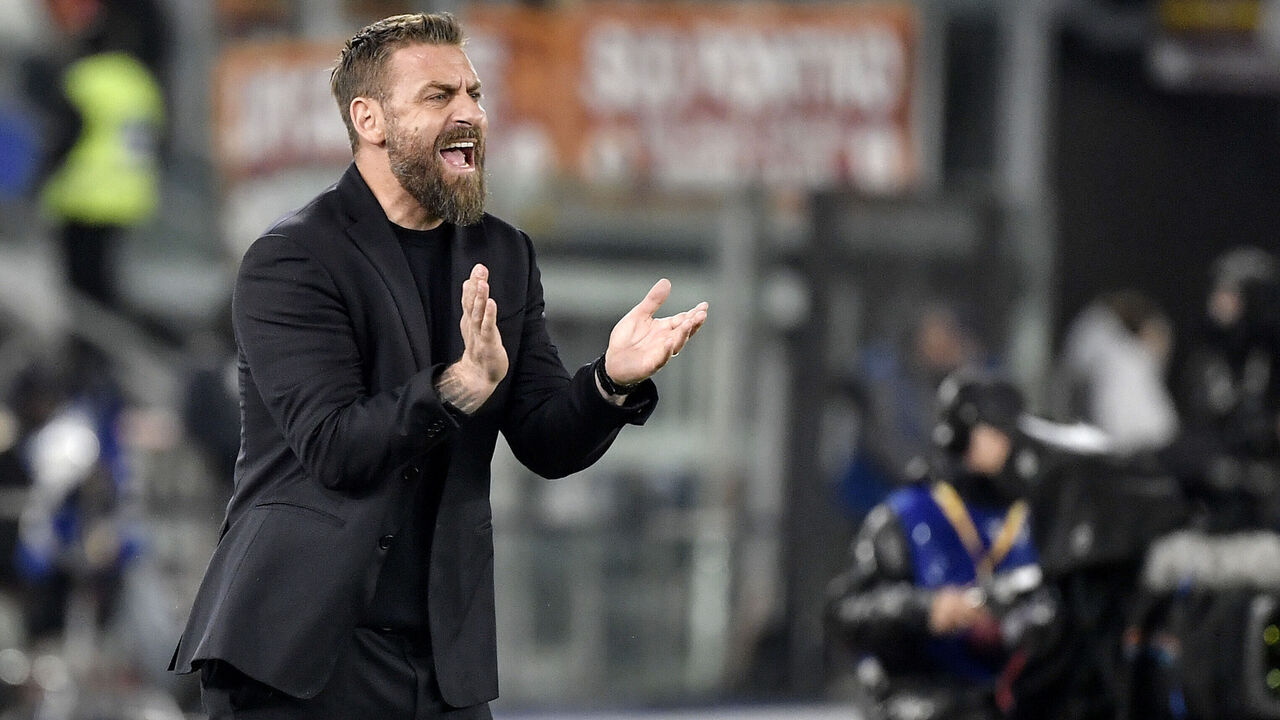
With very little coaching experience to his name and just a six-month contract in hand, Daniele De Rossi was only supposed to be a temporary solution when he replaced the beleaguered Jose Mourinho on the Roma bench in mid-January. All the club legend has done since then is totally reinvigorate the team, racking up nine wins in 13 matches across all competitions – one of those being a shootout victory over Feyenoord in the Europa League – and firing Roma into the race for a Champions League spot with a free-flowing, goal-laden brand of football.
Not bad for someone whose CV only previously included a disastrous four-month stint with SPAL in Serie B. Assuming things don’t fall off a cliff in the season’s final weeks, it would be crazy for Roma to not keep De Rossi on the bench. The players clearly respect the former club captain, and he’s quickly fostered a strong bond with them. What message would it send if they opted for someone else now?
Serie A
Who's in, who's out? Breaking down Euro 2024 qualifying, playoffs, draws
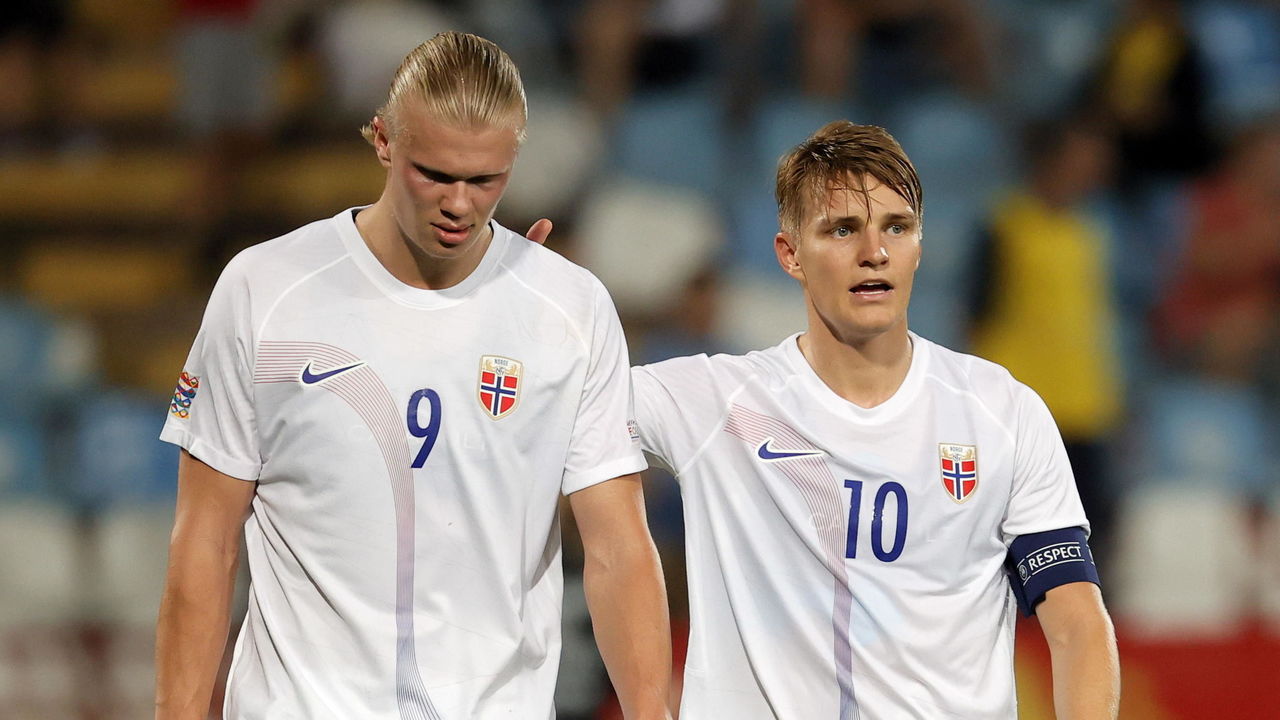
The Euro 2024 puzzle is nearly complete.
The 20 automatic qualifying berths for next summer’s tournament were finalized on Tuesday, as Croatia grabbed the last of those spots, solidifying second place in Group D via a 1-0 victory over Armenia.
With Germany qualifying directly as the host nation, only three spots remain undecided. Twelve teams are now slated to compete in the qualifying playoffs, set for March 2024, to determine who’ll round out the field.
In the wake of Tuesday’s action – and looking ahead to the tournament draw – here’s everything you need to know about Euro 2024 right now.
Which teams have qualified automatically?
As outlined above, 21 of the 24 tournament berths are accounted for; the top two teams from each of the 10 qualifying groups earned progression, joining Germany. Here are the nations that can sit back and relax knowing their tickets are booked for next year’s event:
- Spain (first in Group A)
- Scotland (second in Group A)
- France (first in Group B)
- Netherlands (second in Group B)
- England (first in Group C)
- Italy (second in Group C)
- Turkey (first in Group D)
- Croatia (second in Group D)
- Albania (first in Group E)
- Czechia (second in Group E)
- Belgium (first in Group F)
- Austria (second in Group F)
- Hungary (first in Group G)
- Serbia (second in Group G)
- Denmark (first in Group H)
- Slovenia (second in Group H)
- Romania (first in Group I)
- Switzerland (second in Group I)
- Portugal (first in Group J)
- Slovakia (second in Group J)
Who will take part in the playoffs?
As was the case for Euro 2020, the qualification playoff spots for the upcoming tournament were based exclusively on teams’ performances in the 2022-23 UEFA Nations League.
The 12 teams that have reached the playoffs are split into three sections – Paths A, B, and C – and will compete in four-team tournaments. These will all be single-elimination games, with six semifinal matches scheduled for March 21, 2024, and the decisive finals in each path taking place on March 26.
The three path winners advance to Euro 2024. The main tournament draw will already be completed by this time – more on that soon – meaning the final three qualifiers will already know which group they’ll be slotted into.
The playoff paths, seeding, and semifinal matchups are as follows:
Path A: Poland (1) vs. Estonia (4), Wales (2) vs. Finland/Ukraine/Iceland (3)
Path B: Israel (1) vs. Ukraine/Iceland (4), Bosnia and Herzegovina (2) vs. Finland/Ukraine (3)
Path C: Georgia (1) vs. Luxembourg (4), Greece (2) vs. Kazakhstan (3)
A draw on Thursday, Nov. 23 at 6 a.m. ET will determine the placement of Finland, Ukraine, and Iceland while also deciding which semifinal winners will host the respective finals for each path.
Who missed the tournament completely?
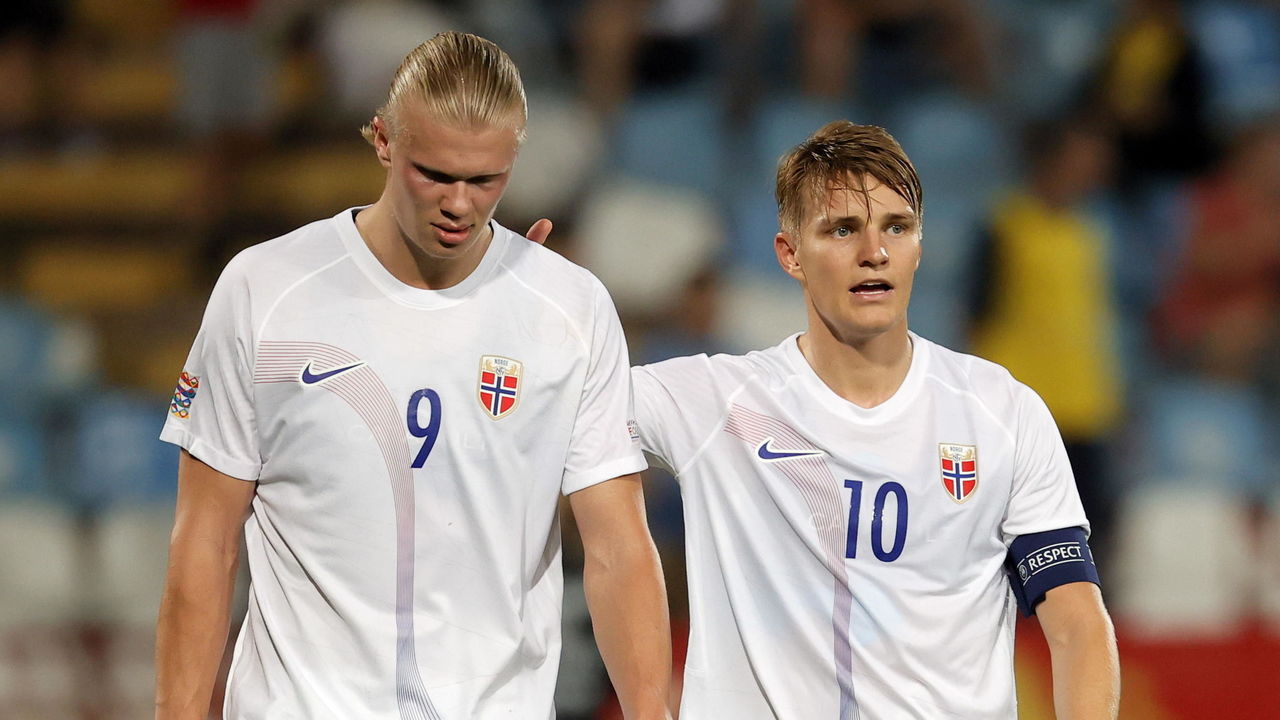
Premier League stars Erling Haaland and Martin Odegaard will be watching another major international tournament from home as Norway once again failed to qualify. Other notable sides to miss out include Sweden and Ireland.
When is the main tournament draw?
The draw for the tournament proper will take place on Saturday, Dec. 2, at the Elbphilharmonie in Hamburg, Germany; Hamburg is one of the host cities for the competition. The draw begins at noon ET.
How will teams be seeded for the draw?
Seeding for the Euro 2024 draw is based on the teams’ performance in qualifying, and, according to Dale Johnson of ESPN, breaks down as follows:
- Pot 1: Germany, Portugal, France, Belgium, Spain, England
- Pot 2: Hungary, Turkey, Denmark, Albania, Romania, Austria
- Pot 3: Netherlands, Scotland, Croatia, Slovenia, Slovakia, Czechia
- Pot 4: Italy, Serbia, Switzerland, Playoff A, Playoff B, Playoff C
Germany gets an automatic place in Pot 1 as the tournament host and is joined by the five group winners from qualifying with the best records. The remaining group winners go into Pot 2, along with the best runners-up. The final two pots are based on how many points the remaining teams collected in qualifying, with the three playoff winners slotting into Pot 4.
Reigning European champion Italy assumes an unfamiliar place in Pot 4 after a nervy qualifying campaign and, in theory, will be forced to navigate a loaded group as it looks to defend its title. With the likes of the Azzurri, the Netherlands, and Croatia in Pots 3 and 4, there’ll almost certainly be some heavyweight encounters sprinkled in amongst the six groups.
Euro 2024 kicks off on June 14 of next year. Germany will take part in the opening match at Bayern Munich’s Allianz Arena.
The top two teams from each of the six groups, along with the four best third-placed finishers, advance to the knockout stages, where every game is single elimination, starting with the round of 16 through to the final.
The showpiece match will be held at the Olympiastadion in Berlin on July 14.
Serie A
Women's World Cup predictions: Champion, biggest flop, and much more
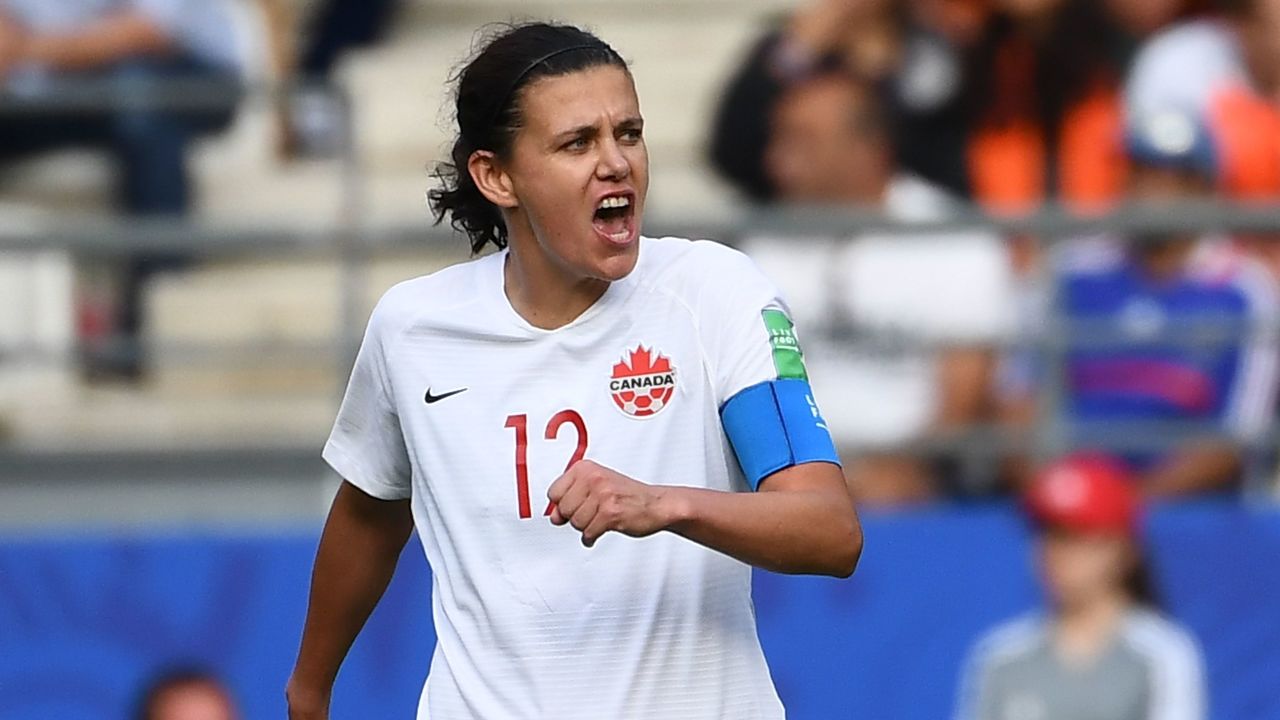
With the 2023 Women’s World Cup opening Thursday in New Zealand, we’re breaking out the crystal ball and offering up some tournament predictions.
Most excited about …
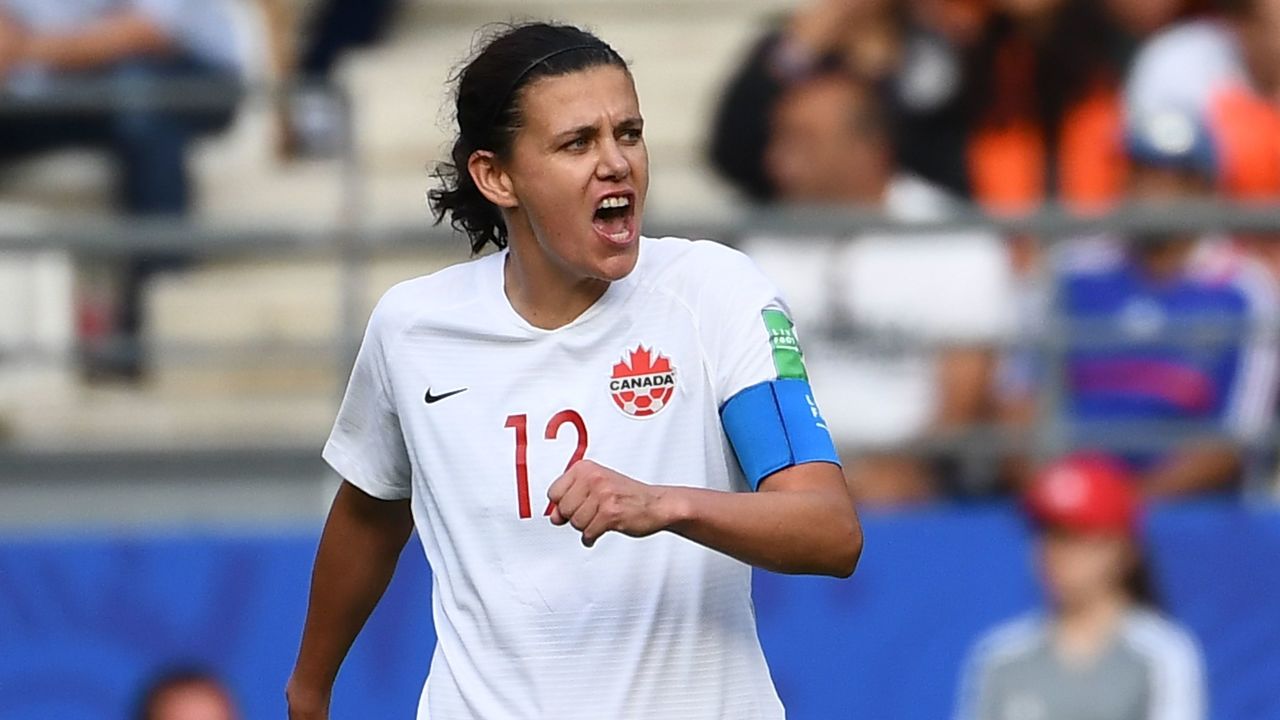
Anthony Lopopolo: Christine Sinclair is competing in her sixth – and likely final – World Cup. While she remains the most prolific international goal-scorer of all time, the 40-year-old is missing a winner’s medal from the biggest tournament of all. In her three-decade career, Sinclair has often led Canada to glory, including at the Tokyo Olympics, where the women won gold. But she’ll need help from her younger teammates – the very generation of girls she inspired with her match-winning displays – to make a deep run in Australia and New Zealand.
Gianluca Nesci: A tournament that could go down as a transformational moment for women’s football – and sport in general. “It feels like a real opportunity to blow the lid off just in terms of fanfare, media, sponsorships, and the sort of larger business around this sport,” U.S. icon Megan Rapinoe said ahead of the tournament. She’s right. Inequities persist in women’s soccer – powerhouse teams like Canada, France, and Spain have all recently been engaged in public battles for better pay, treatment, or both. But this tournament, expanded to 32 teams and generating significant interest before a ball has even been kicked, feels like it could be a vessel for long-term change that could benefit both current and future generations of players.
Breakout star
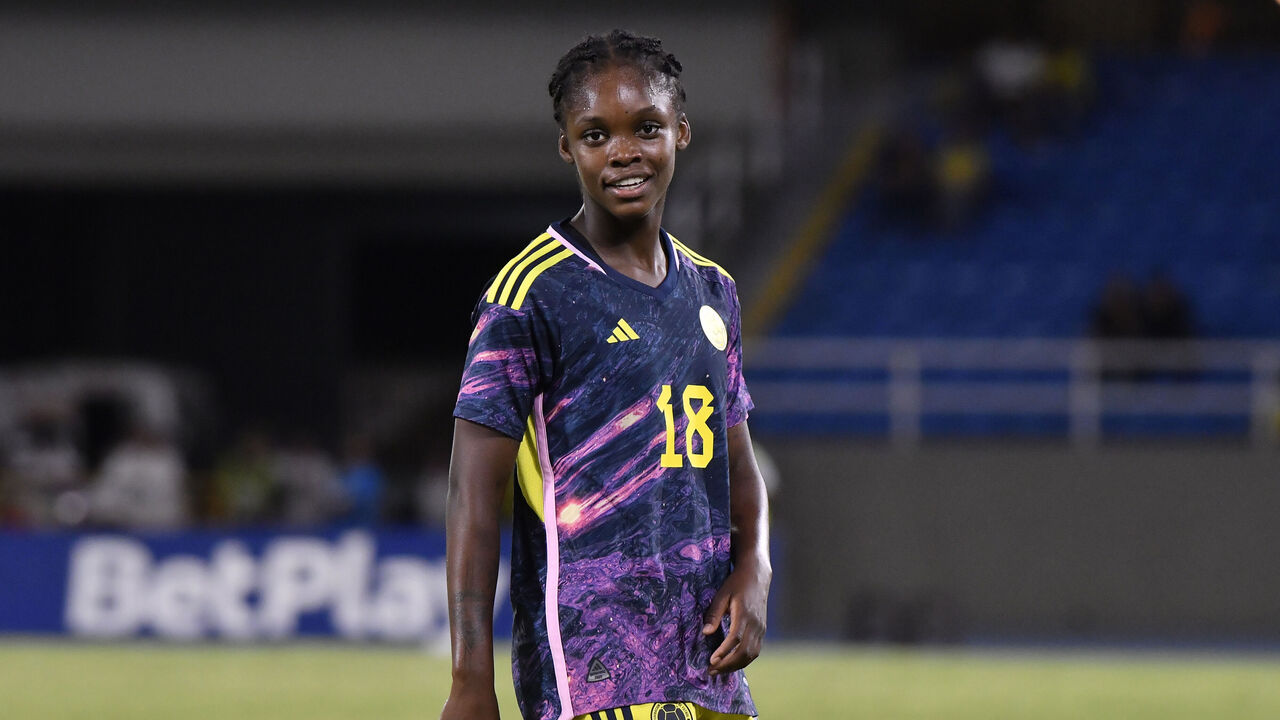
Lopopolo: Giulia Dragoni. At 16, Dragoni has already made her debut for the Italian national team and joined the dominant FC Barcelona Femeni. She’s also the first woman to reside at the Spanish club’s famous La Masia academy. Nicknamed “Little Messi,” Dragoni even bumped Italy’s longtime captain, Sara Gama, out of the Women’s World Cup roster. Dragoni played mixed-gender football as a preteen and developed exceptional technique as a midfielder. Expect her to gain some minutes in the group stage before potentially earning a starting role. She wouldn’t be with the team if head coach Milena Bertolini didn’t have a plan for her.
Nesci: Linda Caicedo. The Real Madrid winger led Colombia to the Copa America Femenina final last year and won the Golden Ball as the tournament’s best player in the process. She was just 17 at the time. Caicedo is a shifty left-winger capable of beating multiple defenders over one mesmerizing run. She also excels at drifting inside, where she can find pockets of space and show off her playmaking and passing abilities. That combination makes her nearly impossible to defend. Despite her youth, the crafty dribbler is already a leader for a Colombian team on the rise. Not to be overlooked, watch out for fellow teen sensation Melchie Dumornay, Haiti’s prolific and talismanic forward.
Biggest disappointment
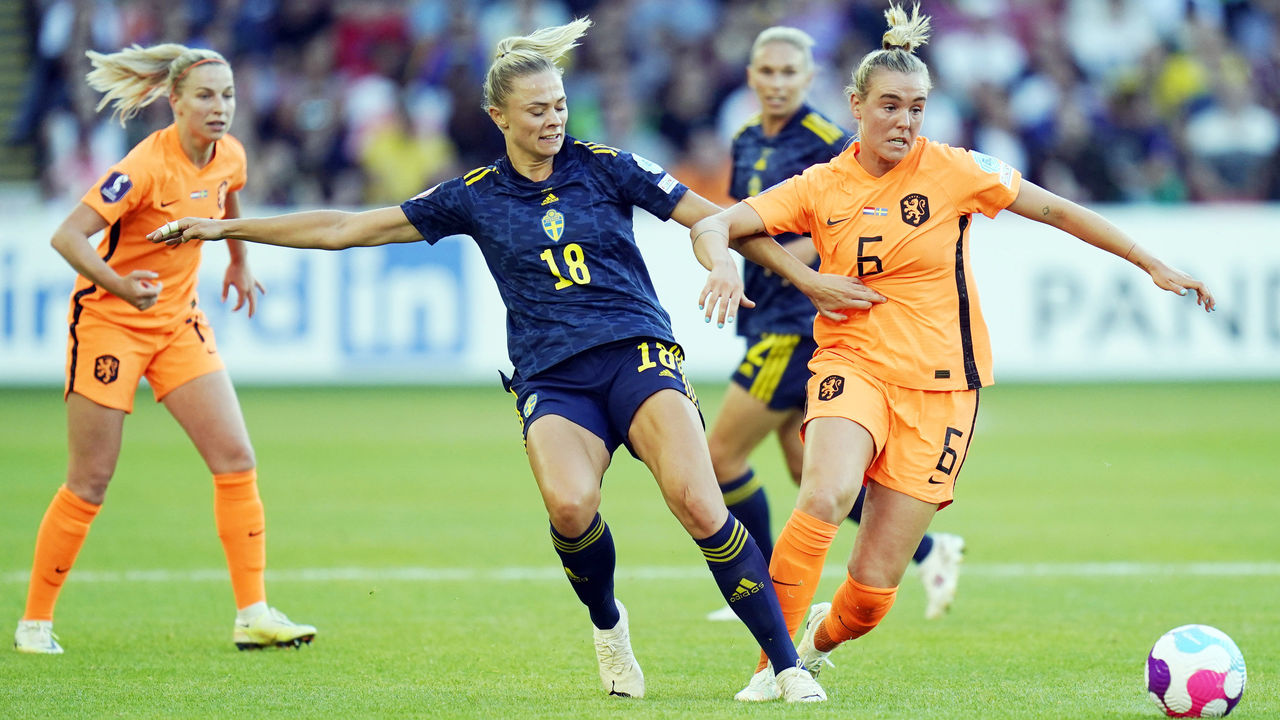
Lopopolo: Sweden. Anything less than a World Cup will come as a disappointment. The national team has already exhausted the bridesmaid narrative, finishing as runner-up at the Tokyo Olympics after a third-place showing at the 2019 World Cup. Though they have considerable experience – veterans Caroline Seger, Kosovare Asllani, and Stina Blackstenius have 491 international appearances between them – pre-tournament injuries to Seger, Asllani, and Fridolina Rolfo threaten to slow the Swedes down. Sweden has a tricky assignment as it is, with the United States or the Netherlands potentially standing in the way in the round of 16.
Nesci: Netherlands. Andries Jonker has reinvigorated the Dutch since he was appointed manager last year, and with the likes of Jill Roord and Lieke Martens, there’s still plenty of star quality on the roster. But we simply cannot overlook Vivianne Miedema’s absence. There’s also the not-so-small matter of the draw, which will see the Dutch meet the powerhouse Americans in a rematch of the 2019 final – but now it’ll come in the opening round. Finish second in Group E, as nearly everyone expects, and a last-16 meeting with Sweden likely awaits. The cards are stacked against the 2019 finalist.
Golden Boot winner
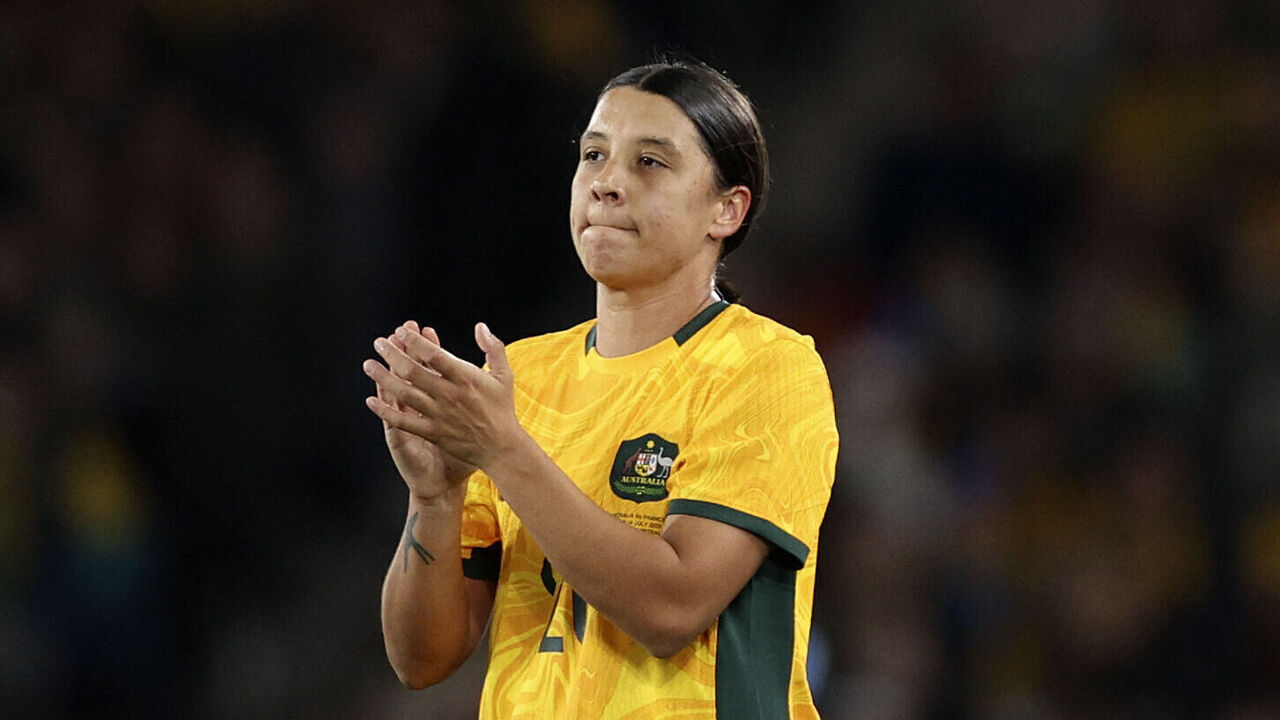
Lopopolo: Sam Kerr. Kerr has a track record of scoring big goals. She netted five at the 2019 Women’s World Cup, finishing one behind Golden Boot winner Megan Rapinoe, and led all players at the 2022 Asia Cup with seven. As Australia’s most prolific scorer – male or female – Kerr will have to play her best football to propel her team past the quarterfinal stage for the first time. She’ll also feel the warmth of the crowd as the Aussies cheer her on, as all three of Australia’s group-stage matches will take place on home soil.
Nesci: Rachel Daly. With Beth Mead injured, Daly will carry more of England’s scoring load. Coming off a WSL campaign in which she tied the league record for goals in a season (22), the Aston Villa forward is more than capable. England’s opener against Haiti is a prime opportunity for Daly to fill the net. She’ll also benefit from a deep tournament run. Don’t be fooled by Daly’s modest international stats, either: the veteran has played a variety of positions for England over the years, but should thrive as the primary threat up front this summer. Alex Morgan and Sophia Smith are good shouts, too, but if they split the difference for the U.S., Daly can collect the hardware.
Tournament final and World Cup champion
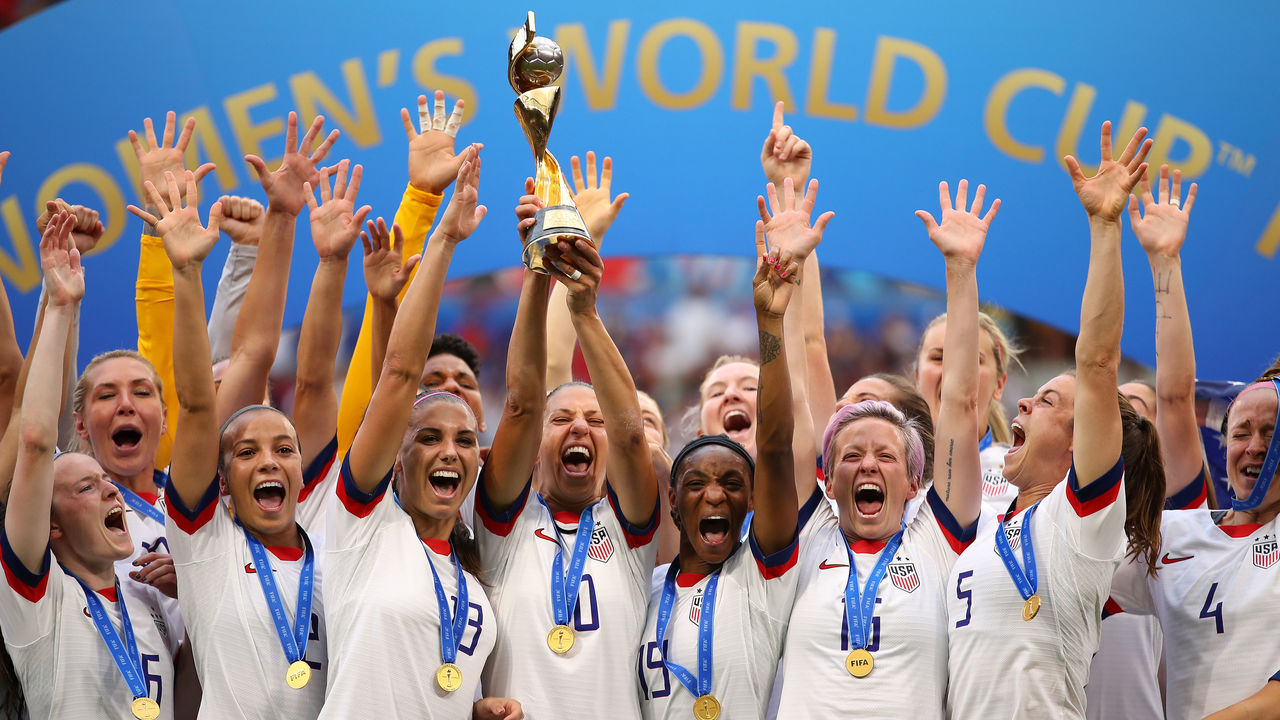
Lopopolo: Germany over the United States. After beating Sweden, Spain, and Italy in the knockout stage, the Americans will trip over the final hurdle and lose their bid to become the first team to win three consecutive World Cups. Germany will avenge its Euro 2022 final defeat to England when the two sides meet in the quarterfinals. German midfielder Lena Oberdorf will shut down the U.S., and Alexandra Popp, Germany’s veteran striker, will bag a brace in the 2-0 victory.
Nesci: United States over England. The reigning title holder, seeking an unprecedented third consecutive World Cup triumph, will meet – and beat – the current European champion in a final for the ages. Injuries have hit the two favorites hard in the tournament’s buildup, but the superior depth of Vlatko Andonovski’s team makes the U.S. better equipped to weather the absences. England has a title-winning pedigree after last year’s Euros but, on this stage, there’s no greater task than beating the United States. Until someone actually pulls it off, I’m not picking against the Americans.

Breaking down thrilling EPL title race with 10 games left

Euro 2024 playoffs: Miraculous Ukraine comeback, big result for Wales

Managerial merry-go-round: Predicting hires for marquee jobs

The Champions League's best XI so far

35 stars who will define the summer transfer window

Ajax show Juventus that winning requires more than individual quality
Trending
-
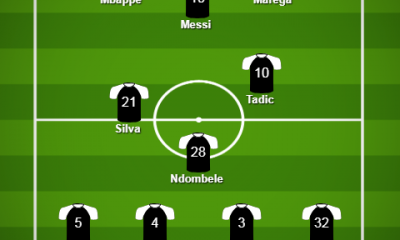
 Champions League5 years ago
Champions League5 years agoThe Champions League's best XI so far
-
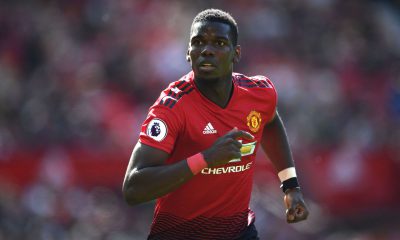
 Serie A5 years ago
Serie A5 years ago35 stars who will define the summer transfer window
-

 Serie A5 years ago
Serie A5 years agoAjax show Juventus that winning requires more than individual quality
-

 Uncategorized3 years ago
Uncategorized3 years agoIFFHS publishes the list of top scorers in football history – Romario first, Ronaldo third
-

 Premier League5 years ago
Premier League5 years agoTransfer grades: Assessing Hazard’s move to Real Madrid
-

 Sports5 years ago
Sports5 years agoReady Newest Trainer in Bundesliga History, retire SOLSKYER.
-
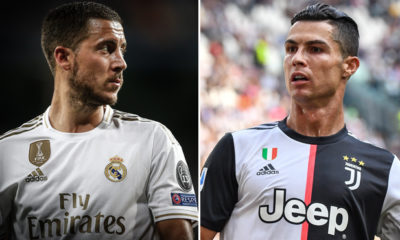
 Sports5 years ago
Sports5 years agoWenger: Hazard can’t replace Ronaldo.
-

 Sports5 years ago
Sports5 years agoMastur Talent Returns: In Milan I was a chance to make money, penalized me for growing up as a footballer.

